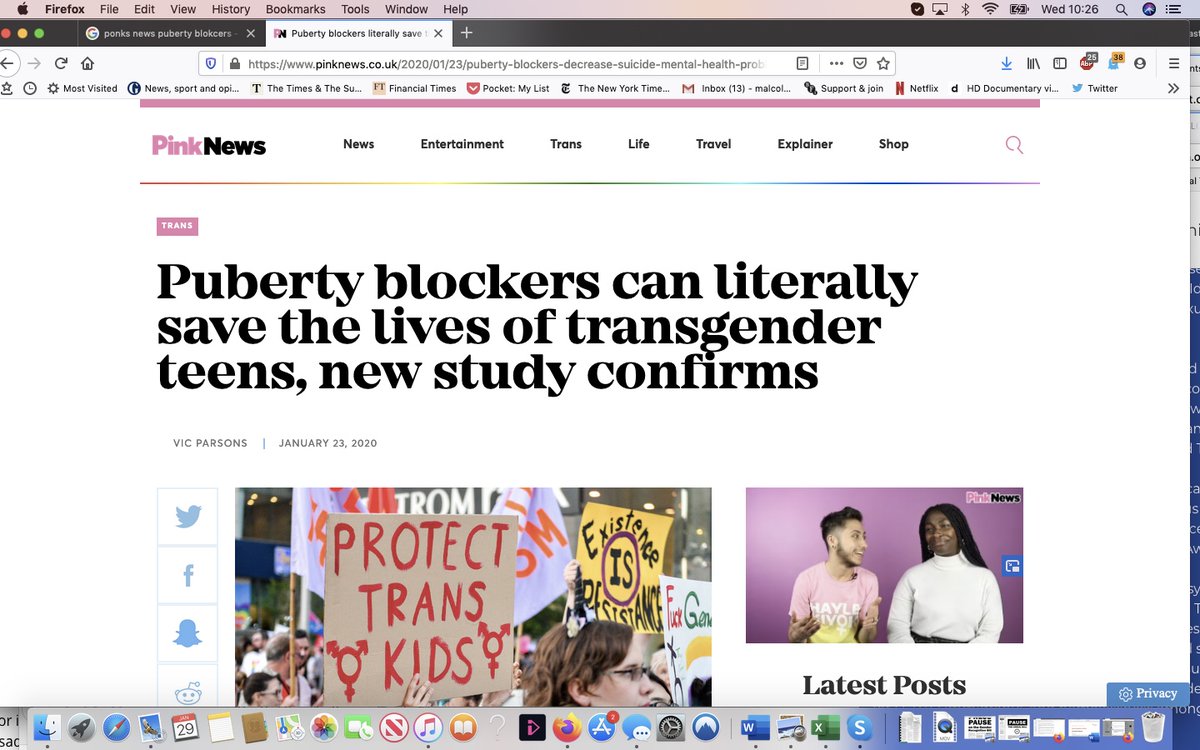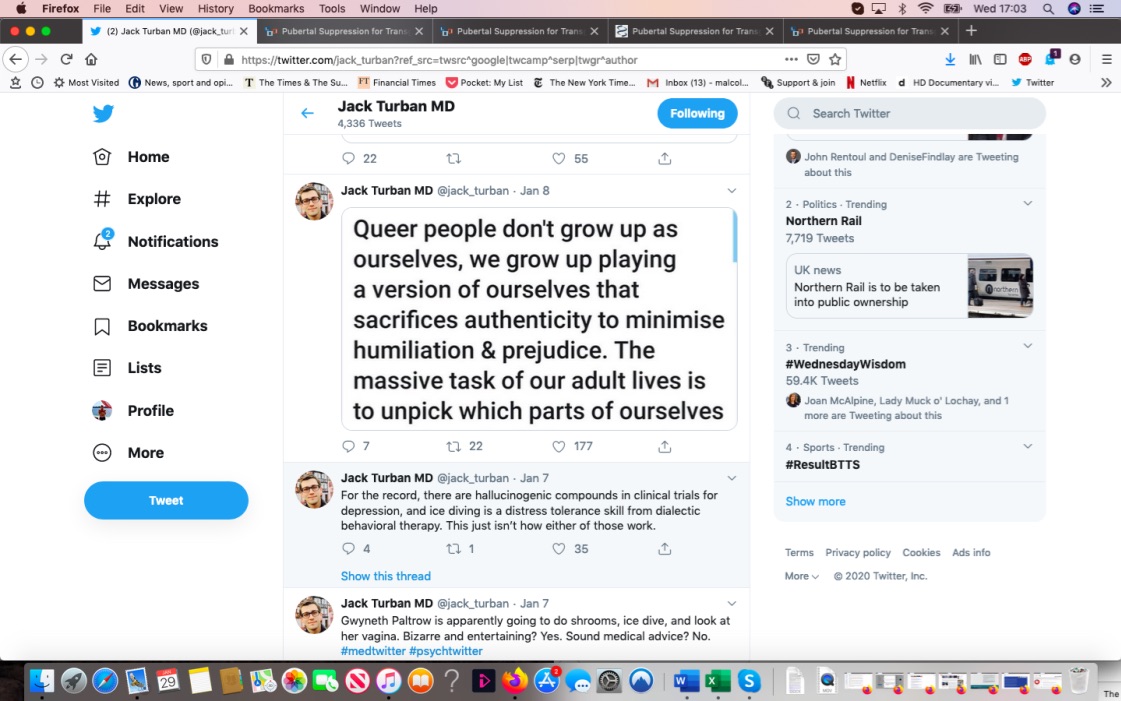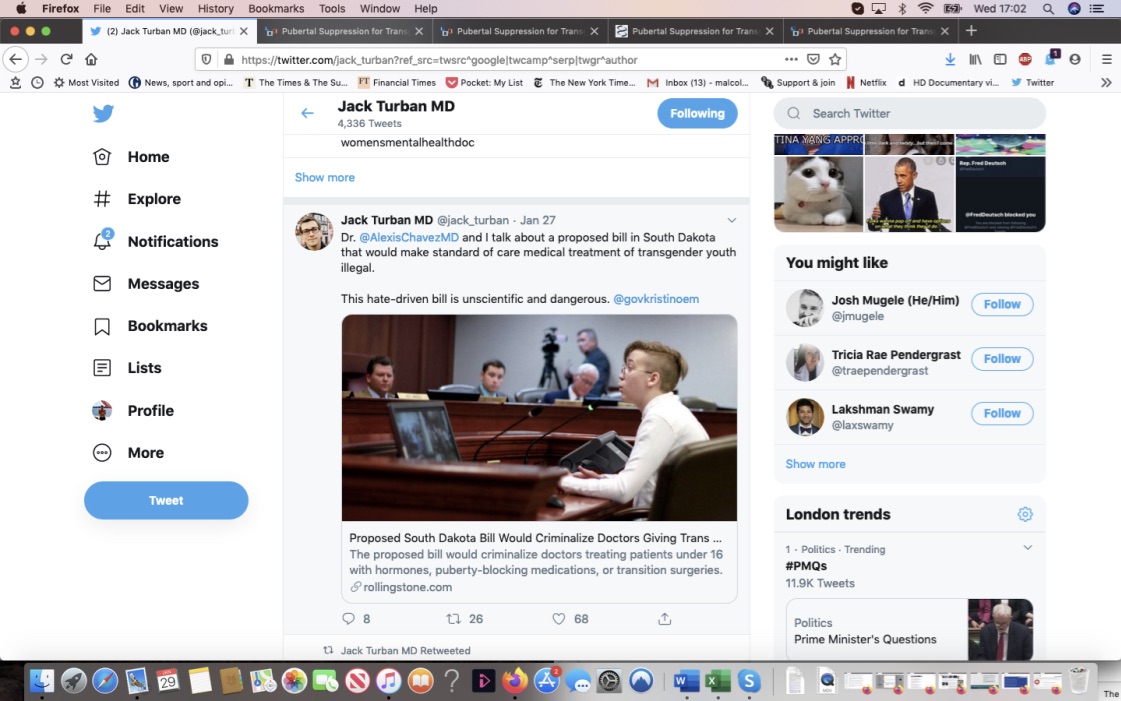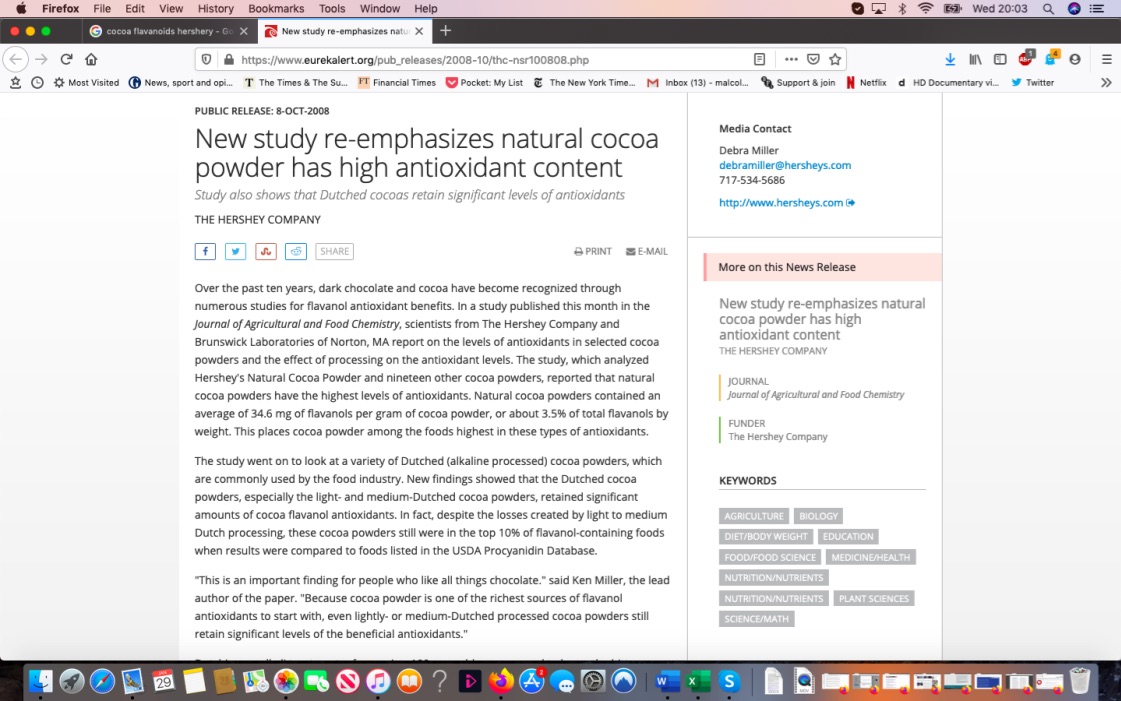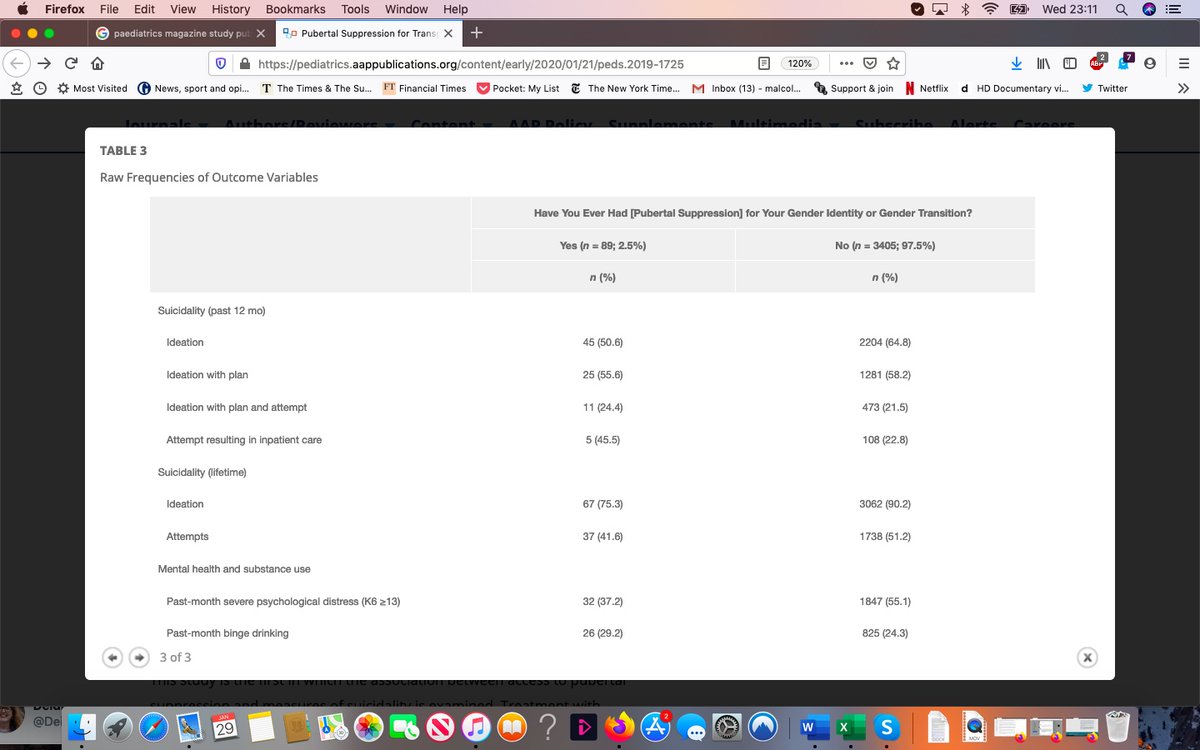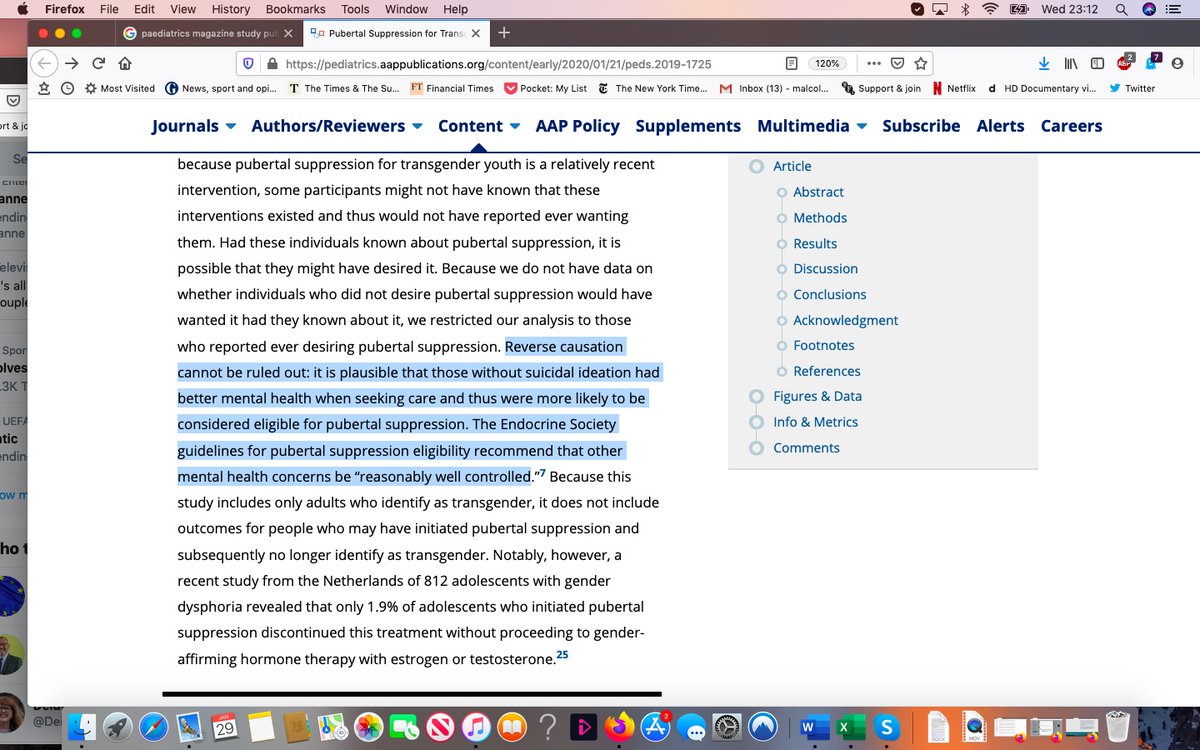A thread. Should we give puberty blockers to kids? A recently published study says YES or so it& #39;s reported. Apparently it will stop some kids committing suicide. But how reliable is the evidence? Come on a journey into science and how it& #39;s reported.
2./ For years I& #39;ve made documentaries on science. The first BBC Horizon I directed investigated a new treatment for genetic conditions. RNA oligonucleotides or the aptly named & #39;Antisense& #39; as it was known was lauded as a likely & #39;miracle cure& #39; for cancer. But we soon discovered..
3./ ..an example of that age-old story of scientists driven to bias by their own wild-eyed optimism. Despite animal trials proving disastrous doctors (many of whom stood to benefit reputationally & some financially) pushed for Phase I trials on humans in London.
4./ The trial was a dud and the appalling side effects experienced by some participants chalked up as useful learning material. A perfect segue perhaps to the world of gender identity "medicine". Pink News last week claimed a study proves puberty blockers save lives. LITERALLY.
5./ Since the use of the & #39;L& #39; word is in inverse proportion to the reliability of a story, this is the first clue something might be wrong with this seemingly uplifting tale. Clue number 2: if it fits perfectly into someone& #39;s agenda it was probably wedged in with a chisel.
6./ Now we know already that stories involving gender identity and suicide stats should be treated with skepticism. In the UK a charity called PACE came a cropper when they claimed 48%+ of young trans people have attempted suicide.
7./ It turned out this stat was based on a survey of 2000 people recruited through LGBT lobby groups whose responses weren& #39;t interrogated at all. Whatsmore the number of young trans people in the survey was just 27. Making such huge claims with such tiny data is absurd.
8./ Despite the researcher Dr Nuno Nodin later expressing regret that his findings had been misinterpreted the stat is still regularly quoted. Such misuse of evidence he said "happens often when research is used by non-scientists in the context of their own agenda." Amen to that
9./ Surely nothing like such bias or dodgy stats could underlie this latest wonderful story? What do you think? The study suggesting puberty blockers cut suicide rates appeared in a respected peer-reviewed journal in the US called Pediatrics. The lead author was Dr Jack Turban.
10./ He regularly calls out Gwyneth Paltrow& #39;s nonsense and battles with anti-vaxxers online. Thumbs up for that. But to say Jack is objective on puberty blockers would be pushing it. In fact the axe he& #39;s grinding is positively humungous. Here he is waxing lyrical on "queerness".
11./ Here he is arguing the case publicly for puberty blockers and other interventions. Jack is avowedly political and he& #39;s in the fight. Good for him. But neutral on the subject he is not. And nor are any of the other authors. But is their evidence reliable?
12./ Well the first thing to note is they themselves carried out no medical research. They spoke to no one, met no one, interrogated no one. What they did is analyse statistically a survey of transgender people carried out online by a transgender lobby group.
13./ For a month in 2015 the National Centre for Transgender Equality (in the US) used its contacts and that of other trans lobby organisations to get 28000 trans people to fill in an online form. You can read the report and download the questionaire here: http://www.ustranssurvey.org/ ">https://www.ustranssurvey.org/">...
14./ At least PACE in the UK called in an outside SCIENCE researcher to run its survey. The organisers of the survey and its final report were all NCTE office holders or active transgender advocates linked to it. I didn& #39;t spot a single hard science degree between them.
15./ We all know vested interests skew research. It& #39;s why when a report announced there were high levels of flavanol antioxidants in chocolate any serious journalist ignored it because...it was based on research carried out at the Hershey laboratories.
16./ Yet this survey by a transgender lobby group that stands to benefit from results being as tragic and depressing as possible run by non-scientists is taken at face value? Nowhere in the survey does it urge participants to be as honest as possible either.
17./ All this doesn& #39;t mean the results aren& #39;t reliable or that Jack Turban& #39;s analysis of its stats isn& #39;t useful. It just means we should be on our guard. So what about that key statistic about puberty blockers? The survey reports that 3494 of the respondents...
18./ ..had wanted them but only 89 of those actually ever got them. The media quoted Turban& #39;s conclusion that getting blockers had massively improved mental health outcomes. But let& #39;s drill down into Jack& #39;s statistics. They reveal a more complex and troubling story.
19./ Yes, over a lifetime 90% of those who didn& #39;t get P Blockers had THOUGHT about suicide (the vaguest question) whereas only 75% with P blockers had. So far so good. But while 51% of those without P blockers had ATTEMPTED suicide SO did 41% of those who took them.
20./ Less convincing but still good. But then it gets worse. Much worse. While 58% of those who& #39;d not received P Blockers PLANNED suicide in the last year so did a full 55% of those who had taken P Blockers as kids. People report more accurately events in the last year...
21./ ..than over an entire lifetime. And 3% is an insignificantly difference especially when we& #39;re talking about just 89 people. But here& #39;s the shocking fact. The stats for actually ATTEMPTING suicide in the last year were HIGHER in those who& #39;d taken P Blockers as kids.
22./ As for the % who ended up hospitalised after an attempt in the last year it was almost DOUBLE among those who& #39;d taken blockers (45% to 22%). So in a survey that might be a tad biased anyway given the peeps who organised it & in a study whose statistical analysis was run by..
23./ ..a passionate advocate of puberty blockers the evidence is still mixed at best. Now for the sting in the tail. At the very end Jack Turban acknowledges one possible reason why those who took blockers might be less likely to be suicidal. The Endocrine Society recommends..
24./ .. blockers should only be given to kids who have other mental health problems "under control". Jack says, "it is plausible that those without suicidal ideation had better mental health when seeking care". No wonder then outcomes are better (though not as much as claimed).

 Read on Twitter
Read on Twitter